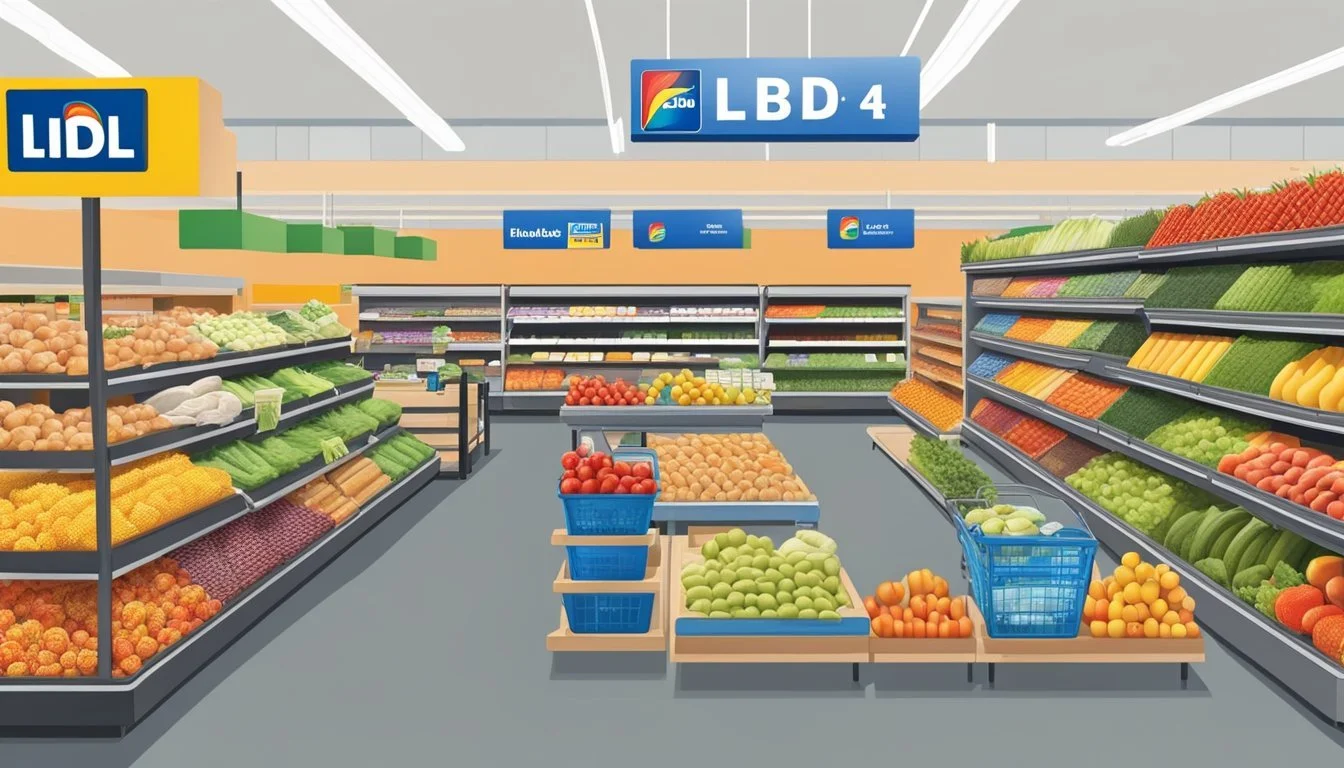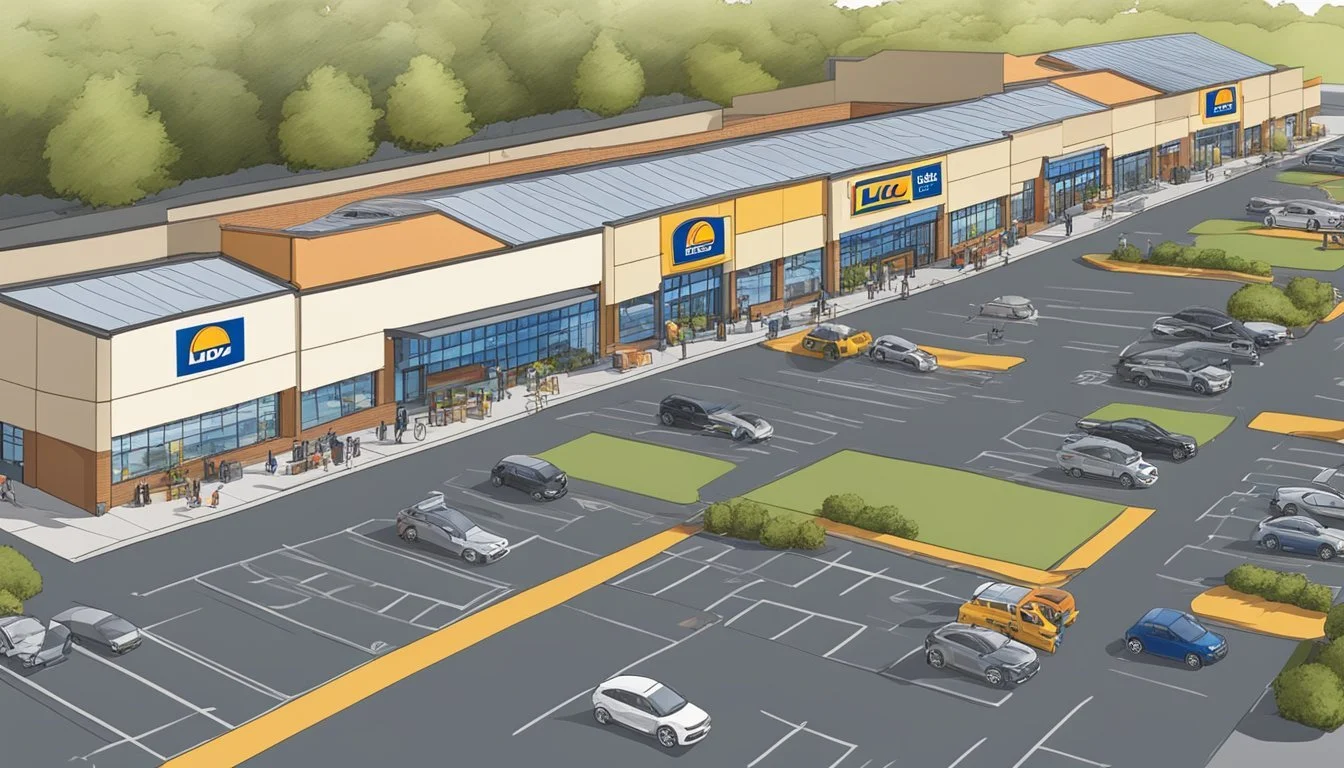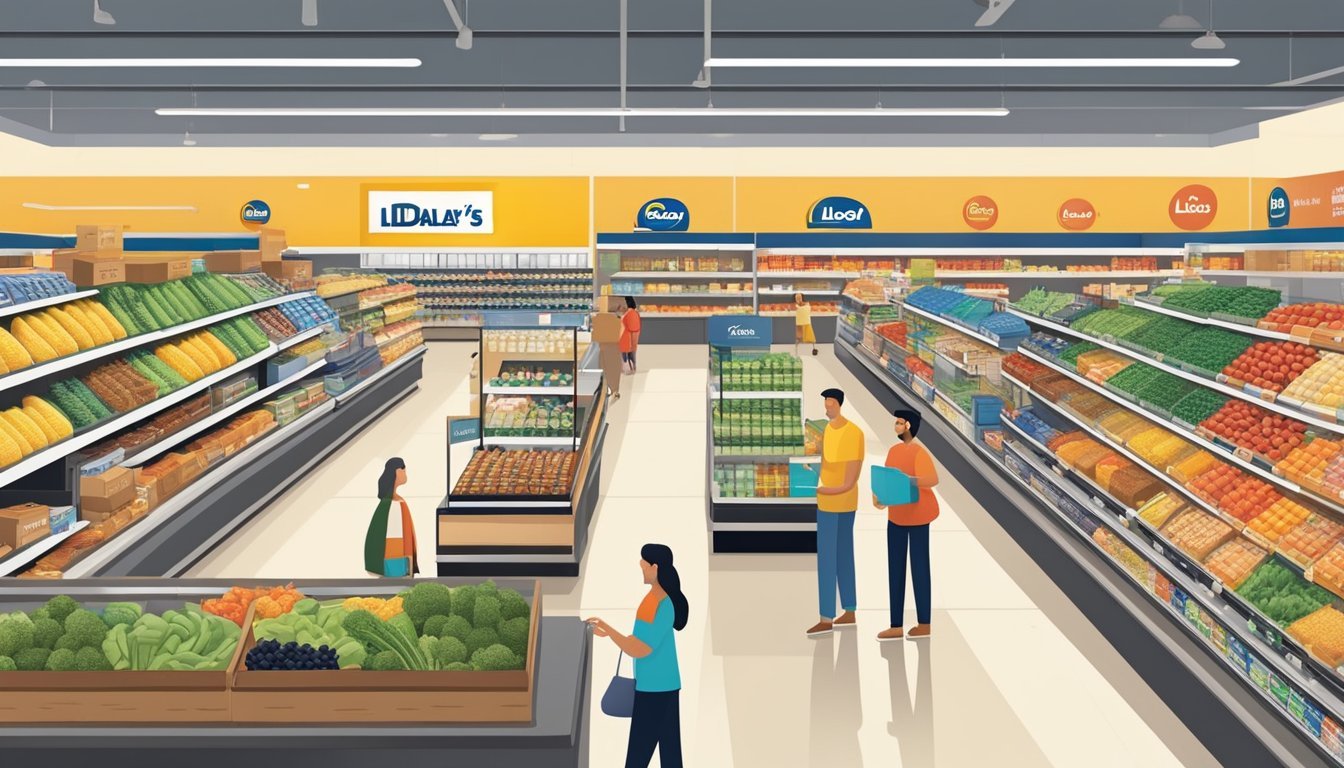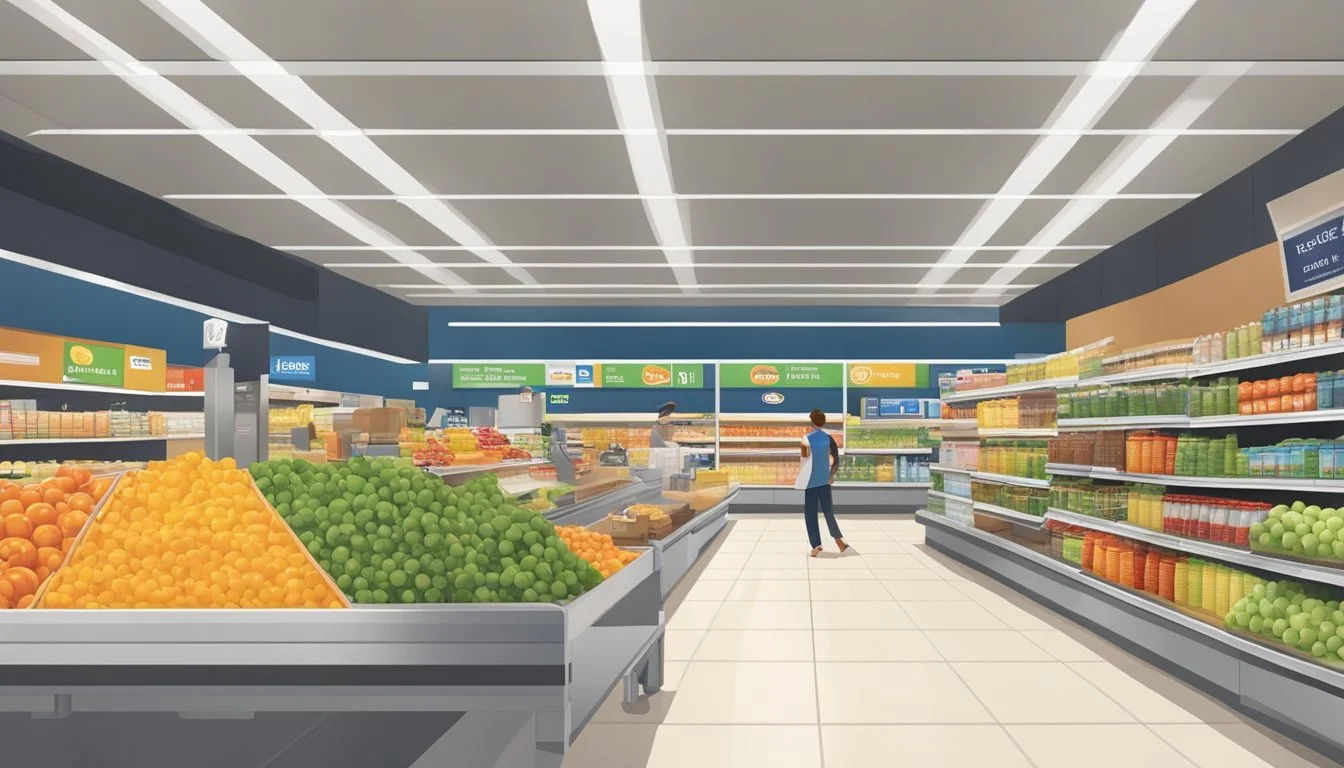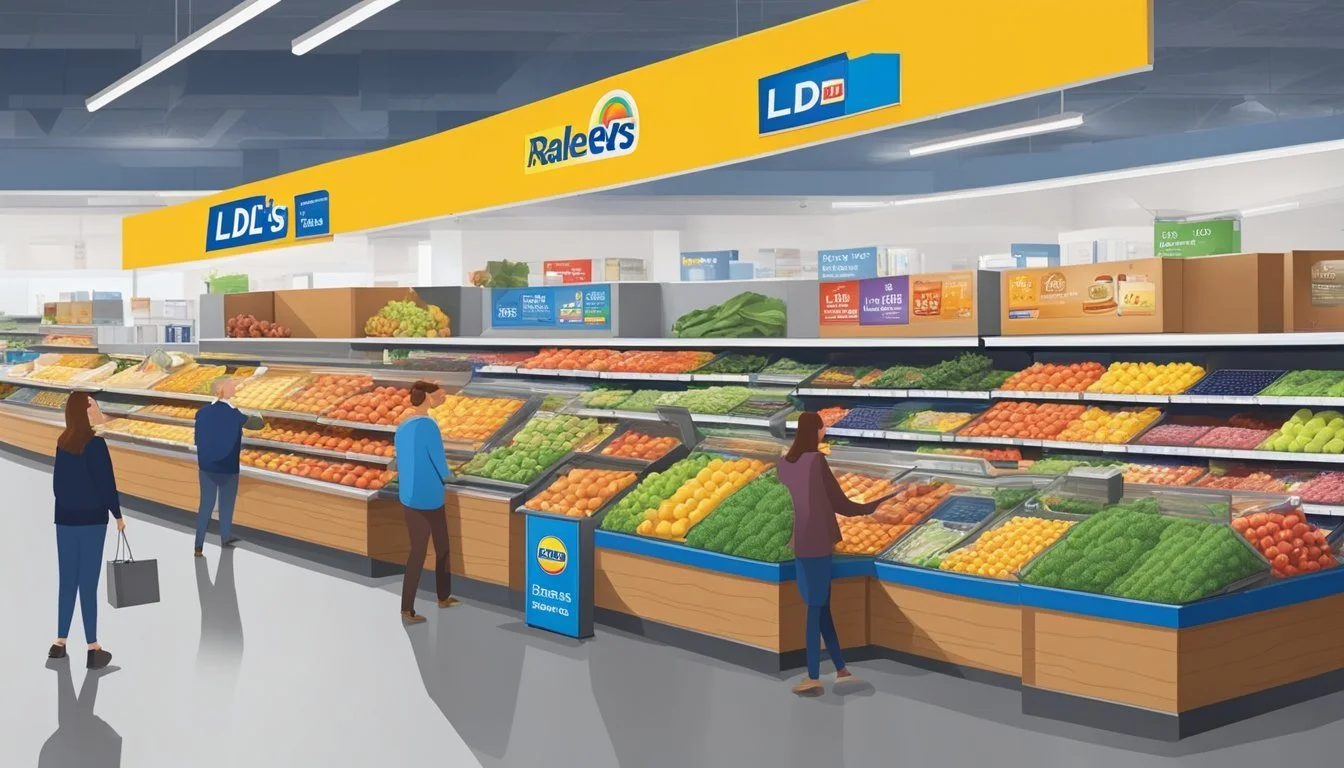Lidl vs Raley's
A Comprehensive Comparison of Prices, Quality, and Selection
Grocery shoppers in certain regions face a choice between Lidl and Raley's when selecting a supermarket. These two chains offer distinct experiences for customers seeking quality products and competitive prices.
Lidl, a German discount grocer, has been expanding its presence in the United States. The company focuses on offering low prices through a no-frills shopping environment and a curated selection of products. Lidl typically provides better overall value for budget-conscious shoppers compared to Raley's.
Raley's, a regional chain primarily operating in Northern California and Nevada, takes a different approach. It emphasizes fresh, high-quality products and superior customer service. While prices at Raley's may be higher than at Lidl, the store often appeals to customers who prioritize product quality and a more upscale shopping experience.
Company Backgrounds
Lidl and Raley's are two distinct grocery chains with unique histories and market positions. Both have grown from humble beginnings to become significant players in their respective regions.
History of Lidl
Lidl traces its roots to 1930s Germany. Josef Schwarz founded Schwarz Lebensmittel-Sortimentsgroßhandlung, a wholesale fruit company. His son Dieter later transformed it into the Lidl supermarket chain.
Lidl opened its first store in 1973 in Ludwigshafen, Germany. The company rapidly expanded across Europe in the 1990s. Today, Lidl operates over 11,000 stores in 32 countries.
The grocery chain entered the United States market in 2017. Lidl's US expansion focused on the East Coast, with plans to grow nationwide.
Lidl is known for its no-frills approach and competitive pricing. The company emphasizes efficiency and a curated product selection to keep costs low.
History of Raley's
Thomas P. Raley founded Raley's in 1935 in Placerville, California. The first store was a 2,500-square-foot market that sold groceries and dry goods.
Raley's expanded steadily throughout Northern California in the following decades. The company acquired other regional chains, including Bel Air Markets and Nob Hill Foods.
Today, Raley's remains a family-owned business. It operates over 120 stores across California and Nevada under various banners.
The company is known for its focus on fresh, high-quality products and customer service. Raley's has also embraced health and wellness initiatives, launching its own organic brand and in-store nutritionists.
Store Locations and Accessibility
Lidl and Raley's have distinct geographical footprints and expansion strategies in the United States. Their store locations and accessibility differ significantly, impacting customer reach and market presence.
Lidl's Growth in the Market
Lidl entered the U.S. market in 2017 and has rapidly expanded its presence. The German discount chain initially focused on East Coast states, opening stores in Virginia, North Carolina, and South Carolina. Lidl has since broadened its reach, establishing locations in New Jersey, New York, Pennsylvania, and Georgia.
The company's aggressive expansion plan aims to open 100 stores annually. Lidl targets both urban and suburban areas, often choosing locations in shopping centers or standalone buildings with ample parking. Their stores are typically smaller than traditional supermarkets, ranging from 20,000 to 30,000 square feet.
Raley's Presence and Expansion
Raley's operates primarily in Northern California and Nevada, with its headquarters in West Sacramento. The family-owned company has a strong regional presence, serving communities for over 85 years. Raley's stores are generally larger than Lidl's, offering a wider range of products and services.
The chain has expanded through acquisitions, adding brands like Bel Air, Nob Hill Foods, and Food Source to its portfolio. Raley's focuses on suburban and rural areas, with many stores located in neighborhood shopping centers. The company has been slower to expand compared to Lidl but maintains a loyal customer base in its established markets.
Raley's has also invested in e-commerce, offering online ordering and delivery services to improve accessibility for customers who prefer shopping from home.
Product Range and Quality
Lidl and Raley's offer distinct product assortments to cater to different customer preferences. Each store has its own strengths in terms of variety and quality across key grocery categories.
Assortment at Lidl
Lidl focuses on a curated selection of around 3,500 products, with 80% being private label brands. Their produce section features fresh fruits and vegetables at competitive prices. Lidl's bakery is a highlight, offering freshly baked breads and pastries throughout the day.
The store stocks a rotating selection of limited-time specialty items. These include international foods, seasonal products, and household goods.
Lidl's meat and seafood options tend to be more limited compared to full-service grocers. However, they emphasize quality and sustainability in their offerings.
Raley's Product Offerings
Raley's provides a wider assortment of around 30,000 products, including many national brands. Their produce department is known for high-quality fresh fruits and vegetables, with an emphasis on organic and locally-sourced options.
The store features full-service meat and seafood counters with trained staff. This allows for custom cuts and special orders.
Raley's bakery offers a broad selection of artisan breads, cakes, and pastries made in-store daily. They also maintain an extensive wine and beer section with knowledgeable staff to assist customers.
The grocery aisles at Raley's stock a mix of conventional, natural, and organic products across categories. This gives shoppers more choices to fit various dietary needs and preferences.
Pricing Strategies
Lidl and Raley's employ distinct pricing strategies to attract and retain customers. Both aim to offer value, but take different approaches tailored to their target markets and business models.
Lidl's Pricing Model
Lidl focuses on delivering consistently low prices across its product range. The German discounter keeps costs down through efficient operations and a limited selection of mostly private-label items. Lidl's no-frills stores and streamlined inventory management allow for significant savings passed on to shoppers.
Everyday low pricing is central to Lidl's strategy. Many staple items are priced below $1, with cereals and produce particularly competitive. A recent study found Lidl beat or matched Aldi on 66% of common grocery items.
Lidl also runs weekly specials on select products to drive traffic. These limited-time deals offer extra savings on both food and non-food items. The rotating discounts encourage frequent visits and impulse purchases.
Raley's Approach to Pricing
Raley's takes a more dynamic approach to pricing, adjusting strategies based on consumer demand and market conditions. The supermarket chain closely tracks shopping patterns to optimize its pricing mix.
Quality and value are key focuses for Raley's. While not always the cheapest option, Raley's aims to justify slightly higher prices through superior products and customer service. The retailer emphasizes fresh, local, and organic offerings.
Raley's loyalty program provides personalized discounts to members. Digital coupons and targeted promotions help price-sensitive shoppers save. The company also price-matches competitors on identical items to retain value-conscious customers.
During inflationary periods, Raley's works to absorb cost increases where possible. The chain negotiates with suppliers and adjusts its product mix to maintain reasonable prices on essential goods.
Customer Experience
Lidl and Raley's offer distinct shopping experiences that cater to different customer preferences. The two grocery chains have unique approaches to store layout, service, and overall atmosphere.
Shopping at Lidl
Lidl's store layout is designed for efficiency and simplicity. Shoppers encounter a no-frills environment with products displayed in their original shipping boxes. This approach keeps prices low but may require customers to be more self-reliant.
The check-out process at Lidl is swift, with cashiers trained to scan items rapidly. Customers bag their own groceries, which can speed up the process for those who are prepared.
Lidl's limited selection of mainly private-label products may appeal to shoppers seeking value. The store's weekly specials on non-food items like clothing and household goods add an element of surprise to the shopping trip.
Raley's Customer Service
Raley's prioritizes customer service as a key differentiator. Employees are typically well-trained and knowledgeable about products, offering assistance throughout the store.
The chain's commitment to service extends to its check-out process. Cashiers often engage in friendly conversation and offer bagging assistance, creating a more personalized experience.
Raley's store layout is more traditional, with wider aisles and clearly organized departments. This setup can make it easier for shoppers to find specific items and browse comfortably.
The company's focus on fresh, high-quality produce and specialty items attracts customers who value variety and are willing to pay for premium options. Raley's also offers services like pharmacy and floral departments, providing a one-stop shopping experience.
Additional Services
Both Lidl and Raley's offer various extra services beyond basic grocery shopping to enhance customer convenience and satisfaction. These additional offerings can make a significant difference in the overall shopping experience.
Amenities Offered by Lidl
Lidl provides several amenities to improve the shopping experience. The store features an in-house bakery where customers can find freshly baked bread, pastries, and other baked goods throughout the day. This ensures a constant supply of warm, aromatic treats for shoppers.
Lidl also offers a selection of prepared foods for customers seeking quick meal solutions. These include ready-to-eat salads, sandwiches, and hot food items that can be purchased for immediate consumption or taken home.
While Lidl doesn't have a traditional pharmacy, they do stock a range of over-the-counter medications and health products. This allows customers to pick up basic health essentials along with their groceries.
Raley's Additional Offerings
Raley's supermarkets boast a more extensive range of additional services. They operate full-service pharmacies in many locations, providing prescription medications and expert advice from licensed pharmacists.
The stores feature expansive deli counters offering a variety of fresh meats, cheeses, and prepared salads. Raley's also provides a selection of hot prepared foods and made-to-order sandwiches, catering to customers looking for quick meal options.
Raley's bakery department produces a wide array of fresh-baked goods, from artisanal bread to custom cakes. Many locations also include floral departments, offering fresh flowers and arrangements.
The company has embraced online shopping, providing delivery and pickup services through their website and mobile app. This allows customers to shop from home and either have groceries delivered or pick them up at their convenience.
Corporate Responsibility and Sustainability
Lidl and Raley's demonstrate commitment to sustainability and community impact through various initiatives. Both retailers prioritize environmental stewardship and social responsibility in their operations.
Lidl's Sustainability Efforts
Lidl US has set ambitious sustainability goals. The company aims to reduce Scope 1 and 2 greenhouse gas emissions by 70% compared to 2019 levels by 2030. This target reflects Lidl's dedication to minimizing its environmental footprint.
Lidl focuses on responsible sourcing practices. The retailer works to ensure its products meet high ethical and environmental standards.
In its first Corporate Social Responsibility report, Lidl outlined 12 key goals across five focus areas. These objectives guide the company's sustainability strategy and community engagement efforts.
Lidl also prioritizes gender equality in the workplace. The company has set a goal to narrow its mean gender pay gap to under 5% by 2030.
Raley's Commitment to Community
Raley's emphasizes local community support through various programs. The company partners with food banks and charitable organizations to address food insecurity in its operating areas.
The retailer promotes healthy eating habits. Raley's offers nutrition education programs and provides affordable access to fresh, nutritious foods.
Environmental initiatives are a key part of Raley's sustainability efforts. The company implements energy-efficient technologies in its stores and distribution centers to reduce resource consumption.
Raley's engages in sustainable packaging initiatives. The retailer works to minimize plastic waste and increase the use of recyclable materials in its product packaging.
Community involvement extends to supporting local farmers and producers. Raley's sources products from regional suppliers, fostering economic growth in the communities it serves.
Market Analysis
Lidl and Raley's operate in distinct segments of the grocery retail market, with differing competitive landscapes and market positions. Their strategies and performance reflect the unique challenges and opportunities in their respective regions and target demographics.
Lidl's Competitive Landscape
Lidl, a German discount supermarket chain, has been expanding aggressively in the United States. The company faces stiff competition from established discount retailers like Aldi and Walmart. Lidl's market share in the U.S. is growing, particularly on the East Coast where it has focused its expansion efforts.
In 2022, Lidl operated over 170 stores across nine states. The company's revenue in the U.S. is estimated to be around $2 billion annually. Lidl's competitive strategy revolves around offering high-quality private-label products at low prices.
Lidl's main rival, Aldi, has a larger U.S. presence with over 2,000 stores. This competition has intensified price wars in the discount grocery segment, benefiting cost-conscious consumers.
Raley's Standing Among Competitors
Raley's, a regional supermarket chain based in California, operates in a more traditional grocery retail space. The company faces competition from larger national chains like Safeway and Kroger, as well as from local and specialty grocers.
With approximately 120 stores across Northern California and Nevada, Raley's holds a strong regional presence. The company's annual revenue is estimated to be around $3 billion. Raley's market position is built on a reputation for quality products and customer service.
In recent years, Raley's has focused on health-conscious offerings and sustainability initiatives to differentiate itself from competitors. This strategy has helped maintain customer loyalty in an increasingly competitive market.
Raley's also competes with warehouse clubs and online grocery services, adapting its business model to include e-commerce options and in-store pickup services.
Consumer Feedback and Brand Perception
Lidl and Raley's have distinct reputations among shoppers based on customer surveys and ratings. Both stores aim to build customer loyalty through different strategies and shopping experiences.
Lidl's Customer Satisfaction
Lidl has gained popularity among budget-conscious shoppers. Surveys indicate high satisfaction with Lidl's low prices and product quality. Customers appreciate the store's efficiency and no-frills approach. Lidl's rotating selection of limited-time specialty items creates excitement for some shoppers.
Many praise Lidl's fresh produce and in-house bakery. The store's private label products often receive positive feedback for matching national brand quality at lower prices. Some customers note the smaller store format can lead to crowding during peak times.
Lidl's focus on sustainability and ethical sourcing resonates with environmentally-conscious consumers. The company's efforts to reduce plastic packaging have been well-received.
Raley's Reputation Among Shoppers
Raley's has cultivated a reputation for quality and customer service. Consumer Reports surveys rank Raley's highly for store cleanliness and staff courtesy. Shoppers appreciate Raley's emphasis on fresh, local produce and high-quality meats.
The store's loyalty program and personalized promotions contribute to customer retention. Raley's commitment to health and wellness is reflected in its product selection, which appeals to health-conscious consumers.
Customers value Raley's community involvement and support of local charities. The company's efforts to educate shoppers about nutrition have been praised. Some surveys indicate shoppers perceive Raley's prices as higher than discount competitors, but many feel the quality justifies the cost.
Raley's online ordering and curbside pickup services have received positive feedback for convenience and reliability.


